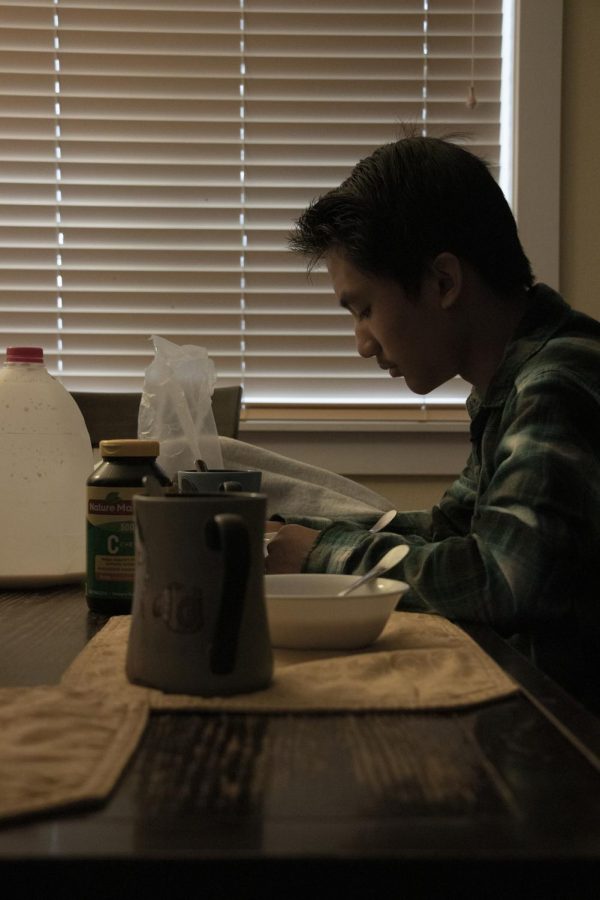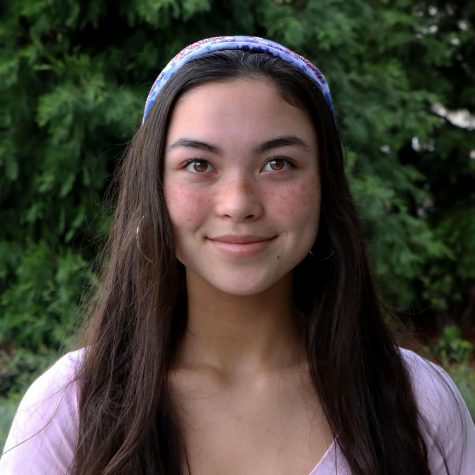Feeling Less Motivated? It May Be Linked To A Medical Condition
SEASONAL MOOD DISORDER AFFECTS MILLIONS: An annual depression known as Seasonal Affective Disorder is causing many individuals to loose motivation, appetite, and brings about sleep deprivation. Could you be suffering from SAD?
December 10, 2019
With winter just starting, there are many things that begin to change. Trees begin to lose their leaves, the days get shorter as the nights get longer, the temperature begins to drop, and the Christmas spirit becomes widespread. We also see an increase in the amount of travel as Thanksgiving and Christmas draw nearer, as more people fly home to visit family. What is less noticeable are the changes that also occur in people’s moods and actions. A medical condition that affects over 3 million individuals a year, Seasonal Affective Disorder is present in the colder months of the year and SAD can be defined as a mood disorder characterized by depression that occurs around the same time every year. It commonly starts in the fall and may continue into winter months.
Seasonal Affective Disorder is typically treatable by medical professionals and severe cases are quite uncommon. It can usually be resolved within months, and is generally self-diagnosable. General symptoms of Seasonal Affective Disorder include but are not limited to fatigue, depression, hopelessness, and social withdrawal. In terms of mood, anxiety, apathy, mood swings, loneliness, and loss of interest are prevalent. In terms of sleep, excess sleep is common, as well as insomnia, and sleep deprivation. Irritability, social isolation, appetite changes, weight gain and lack of concentration are also common. Although SAD can be self-diagnosable it is best to consult with a medical professional if you are in search of treatment or medication.
SAD is a real medical condition that should be taken seriously, as it affects millions of people every year. Senior Swathi Padmanabhan said, “I think it should be taken seriously, but I also think people take advantage of it.” Swathi recognized that she sees a lot of her classmates slacking off more in winter months compared to the start of the year, when people seemed more productive. Junior John Benis said, “I do not think anyone needs medication for it.” In relation to the disorder and ways of treatment, Benis thought natural ways like staying active would be more beneficial than taking medication.
There are multiple ways to prevent getting SAD. In winter months weight gain is highly prevalent so exercising would be the first thing to try. With all the holidays, and the fact that the cold and dark keep us more inside, it is often hard to stay in shape. That is why getting off of your couch and into the gym is important. Light therapy is also a popular technique because it affects brain chemicals associated with mood, therefore helping depression symptoms. One type of light therapy is known as light box, which mimics natural outdoor lights without the harmful ultraviolet rays. Research done by Odyssey shows that people tend to crave more carbohydrates during the holidays and freezing months, so it is important to try to eat healthy during these cold times. Also with less sunlight, it is also crucial to take vitamins; medical experts recommend a Vitamin D supplement as a good alternative. Among these preventative tips, it is imperative to stick to a routine and keep busy. It is easy to bundle up and stay warm as laziness and lack of motivation are common this time of the year. By having a set routine, you are able to focus more and be more productive. Sophomore Hannah Trinh said, “Because I have a normal routine of waking up early and doing stuff in the mornings, it is easier for me to get up.” Others may even find the darker hours of the day more appealing. Freshman Jack Tenace said, “I love it when it gets dark earlier. I feel like it is already time to go to bed and that to me is great.” So while most students dislike the winter months and ending daylight savings time, there are always a few that prefer it. Overall, It is important to stay productive in the winter to avoid getting SAD, which may heavily affect your daily life. By following the steps above, you can stay on top of your priorities and maintain your emotional health.


